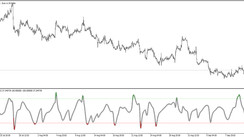A Deep Dive Into Day Trading
Day trading, the rapid buying and selling of assets within the same day, is a strategy that has attracted countless investors. It is defined by the absence of overnight holdings and has the potential to be quite lucrative, but with great reward also comes substantial risk.
Being a short-term investment strategy, day trading banks on minor fluctuations in the market. To pinpoint these shifts, day traders often rely on technical analysis—a sophisticated tool to decipher market data by identifying patterns and trends.
Strategies and Tools for Day Trading
Day traders utilize a myriad of techniques. Some of the most prevalent include:
-
Scalping: A high-frequency trading strategy that focuses on capturing small profits consistently.
-
Range trading: A strategy that capitalizes on trading within a specific price range.
-
Trend trading: A method which places trades aligned with the current market trend.
Factors Influencing Day Trading
Several elements can impact the outcomes of day trading, such as:
-
Market volatility: The degree of variation in the prices in a market. While high volatility can provide lucrative opportunities, it can also heighten the risk of potential losses.
-
News events: Significant news events can drastically sway asset prices. Day traders should stay abreast of current events and their possible impact on the markets.
-
Technical analysis: Used to identify market patterns and trends, it's a vital tool for spotting opportunities and managing risk in day trading.
Tips for Novice Day Traders
Before diving into the world of day trading, here are some practical tips:
-
Try a demo account: Practice your trading skills in a risk-free environment before risking your own capital.
-
Start small: Minimize potential losses by starting with small investments.
-
Use stop-loss orders: This tool automatically terminates your trade if the price moves against your position by a predetermined amount, helping you control your losses.
-
Patience is key: Day trading isn't a get-rich-quick scheme. Consistency and patience are critical to steady profits over time.
Risks Associated with Day Trading
Day trading, despite its potential for profit, isn't without risk. In fact, many newcomers to day trading experience losses. The hazards include:
-
High volatility: Volatile markets can cause significant losses.
-
Lack of liquidity: In some markets, insufficient liquidity can hinder profitable trade exits.
-
Commissions and fees: Day traders generally face higher commissions and fees compared to long-term investors.
-
Emotional stress: The high-stress nature of day trading can negatively affect decision-making.
Expert Opinions on Day Trading
Numerous experts view day trading as a potentially profitable investment strategy but warn about the importance of discipline and trading with expendable funds. Michael Carr, a respected financial writer, voiced in a Forbes article, "Day trading can be a profitable avenue for investment, but understanding the risks and doing your homework are essential."
Wrapping Up
While day trading can be a lucrative investment strategy, it's crucial to approach it with a thorough understanding of the associated risks. Applying the strategies and tips outlined in this article can enhance your chances of successful trading.





